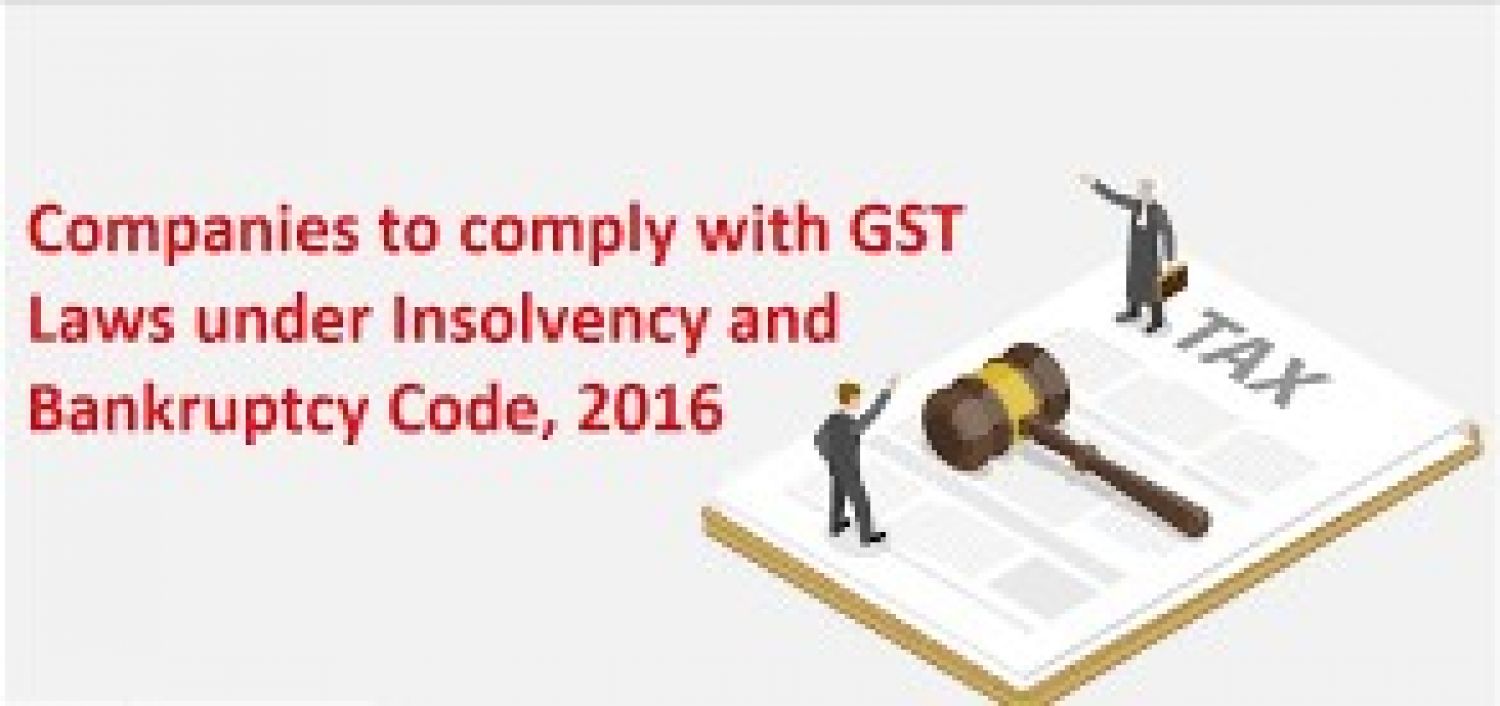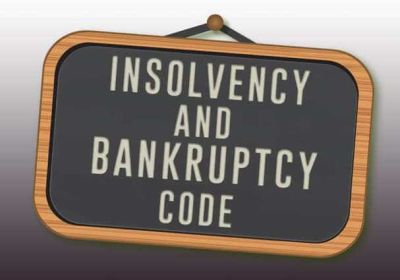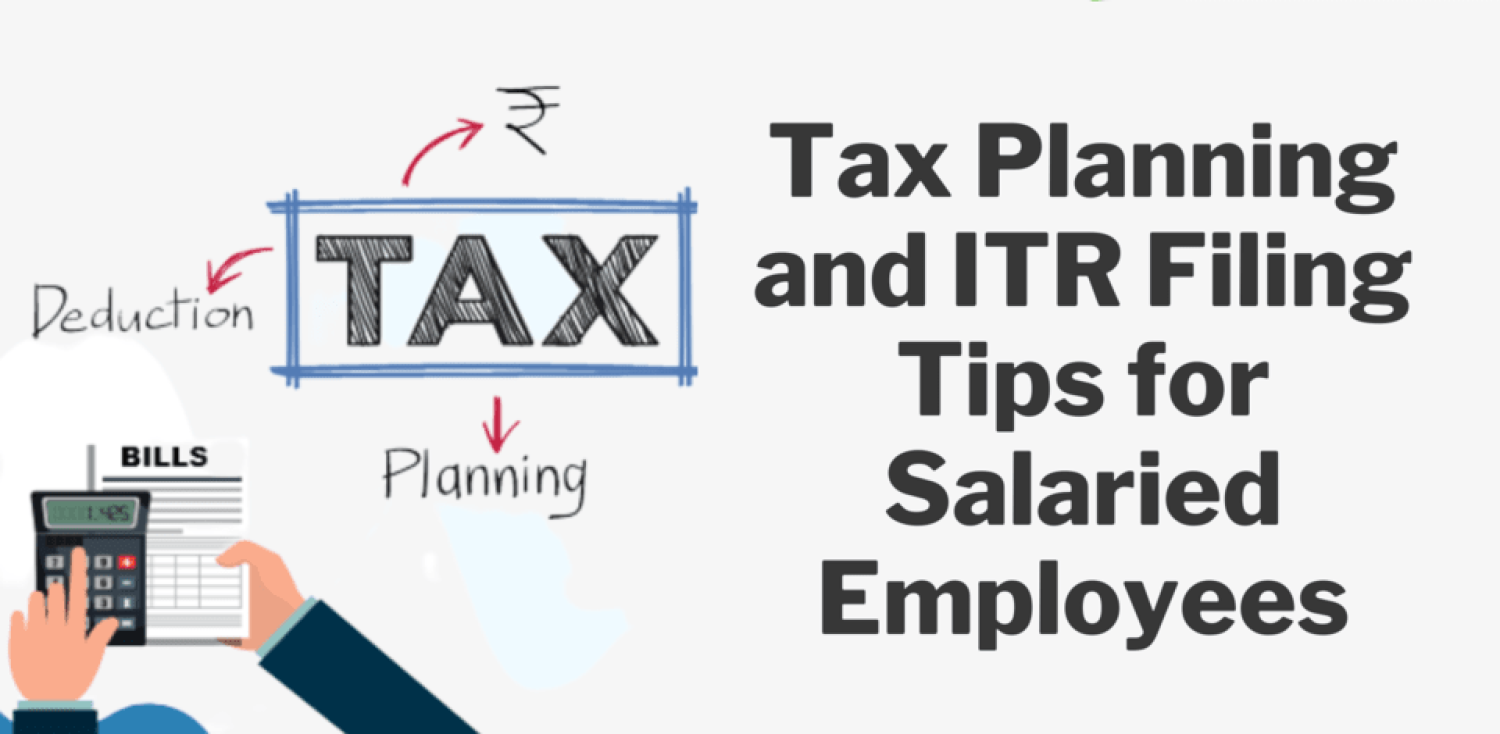Table of Contents
- Q.: What Is The Procedures For A Corporate Debtor Going Via Cirp?
- Q.: Will The Corporate Debtor's Current Registration Be Cancelled?
- Q.: How Will Itc For Invoices Issued Prior To Notification To The Previously Registered Person Be Calculated?
- Q.: How Will A Person Making Supplies From A Corporate Debtor On An Existing Gstin Claim The Itc?
- Q.: Is It Possible To Get A Reimbursement For Money Placed By Irp/rp In The Cash Ledger Of An Existing Corporate Debtor Registration?
- Q.: Who Will Be Responsible For Filing A Return For The Time Prior To The Cirp?
- Q.: Who Is Responsible For Filing The First Return After Getting New Cirp Registration?

GST & INSOLVENCY CODE
- It appears that the economy poised for certain substantial gains, arising from the structural reforms, being applied by the govt.
- Over the years, The ET Awards ceremony has provided the right platform for government and industry to come back together, and deliberate on what works best for India.
- The Goods and Services Tax, and also the Insolvency and Bankruptcy Code are game changers for the industry. Earlier on, the govt announced a large-scale recapitalisation of banks and an enormous highway building programme. The economy appears poised for substantial gains from the structural reforms applied by the govt.
- This is beginning to reflect within the numbers furthermore. Industrial growth was at 9 months high and the same was at 4.3%in the month of August.
- Consumer inflation was a gradual 3.3 per cent in September as many were expecting it to be much higher.
- Exports rose 26% in September. Fast-moving economic indicators like sales of cars, two-wheelers and commercial vehicles do well.
- And the credit for that, in an exceedingly very large measure, should go to finance minister Arun Jaitley. We are honoured to have him here today, to simply accept the Business Reformer of the Year Award.
-
Special Procedure Corporate Debtors Undergoing CIRP: The Special Procedure Corporate Debtors Undergoing procedure should be followed by a corporate debtor undergoing CIRP and whose assets are managed by insolvency resolution professional/Resolution Professional. The period of GST compliance will run from the date of the insolvency resolution professional appointment Resolution Professional’s until they complete the CIRP.
-
RP/ IRP Obtain a new GST Registration under GST Act : Such entities are treated as separate individuals from the moment of appointment of an insolvency resolution professional/Resolution Professional. They may need to New GST registration in each state/union territory where it was previously applied.
-
Claim Input Tax Credit : Such persons are eligible for Input Tax Credit on any invoices with an earlier GSTIN, including both goods and services. Input Tax Credit is available under the terms of Chapter V of the Central Goods and Services Tax Act of 2017. The Central Goods and Services Tax Act of 2017 imposes two limitations on obtaining Input Tax Credit. These provisions are listed below:
- Under Section 16(4): It puts a restriction/ condition on availing Input Tax Credit if such taxpayer has delayed submitting GSTR-3B for tax periods from July 2017 to March 2018.
- As Per Rule 36(4): It stipulates a cap of 10% provisional Input Tax Credit. Even a registered person receiving goods from such companies can claim Input Tax Credit on invoices bearing the earlier GSTIN in compliance with the conditions specified under Chapter V of the Goods and Services Tax Act.
-
Applying for GST Refund: From the date of appointment of the insolvency resolution professional/Resolution Professional until the date of notification specifying a particular procedure for corporate debtors undergoing insolvency, any amount deposited in the cash ledger of the earlier GSTIN is available for a refund. Even if no GSTR-1 or GSTR-3B returns are filed for the specified period, a GST refund is available.
-
During the insolvency process, the management operations of the corporate debtor undergoing CIRP are handed to an IRP or RP. Such Corporate Debtor ( Defaulting Company ) undergoing the CIRP and whose affairs are managed by the Insolvency Resolution Professional or Resolution Professional will now be treated as a separate person for this purpose and will be required to get a New GST Registration within 30 days of the IRP/appointment. Resolution Professional's During the time they are undertaking CIRP under IBC, such corporate debtors must follow the compliance procedure and file GST Returns, as well as all other connected compliances.
Q.: What is the procedures for a Corporate Debtor going via CIRP?
- From the date the IRP/RP is appointed, the corporate debtor will be viewed as a distinct person.
- Every state in which the corporate debtor was previously registered would need him to get a new registration.
- If the IRP/RP is appointed before the notification date, the Corporate Debtor must register within 30 days of the notification date.
- He is required to file a first return under Section 40 of the CGST Act for the period in which he becomes liable to register until the day on which registration is granted.
- During the CIRP period, it is the responsibility of the IRP/RP to file returns, pay taxes, and comply with GST law.
- ITC from invoices covering supplies of goods and services received since the appointment of the IRP/RP but bearing the GSTIN of the former registered person ( Previous GSTIN ) can be claimed in the first return, subject to the conditions of Chapter V of the act, with the exception of Section 16(4) and sub-rule (4) of rule 36. This means that the 10% ITC cap will no longer be in effect.
Q.: Will the Corporate Debtor's current registration be cancelled?
- There will be no cancellation of existing registrations.
- The proper officer has the authority to suspend the registration if necessary.
- If a registration has previously been cancelled, it may be revoked after performing the necessary requirements.
Q.: How will ITC for invoices issued prior to notification to the previously registered person be calculated?
- In the first return, the corporate debtor will be eligible for input tax credit on invoices for supplies of goods or services received after the start of CIRP and within the CIRP period, but bearing the GSTIN of the former registered person (Old GSTIN).
- The 10% ITC capping limit will no longer be in effect.
- Only the initial return filed under section 40 of the CGST Act is exempt from this rule.
Q.: How will a person making supplies from a Corporate Debtor on an existing GSTIN claim the ITC?
- Registered people who receive supplies between the date IRP/RP is appointed and the date new registration is given to Corporate Debtor, or 30 days from the date of notification, whichever comes first, are eligible to claim ITC on invoices issued by corporate debtor on the current GSTIN[1].
- The 10% cap will also not be enforced in this case.
Q.: Is it possible to get a reimbursement for money placed by IRP/RP in the cash ledger of an existing Corporate Debtor registration?
Even if the appropriate forms GSTR1 and GSTR3B are not filed, any amount placed by IRP/RP in the existing registration number of Corporate Debtor is entitled for return.
Q.: Who will be responsible for filing a return for the time prior to the CIRP?
- It has been clarified that IRP/RP are not required to file a return for the pre-CIRP era. As a result, it's safe to infer that Corporate Debtor will submit a return for the pre-CIRP period.
Q.: Who is responsible for filing the first return after getting new CIRP registration?
- During the CIRP period, it is the responsibility of the IRP/RP to file returns, pay taxes, and comply with GST law.
Conclusion:
- To encourage MSME, the govt has raised the IBC application threshold from Rs 1 lakh to Rs 1 crore.
- Furthermore, the government has taken the step of introducing Special Procedures for Corporate Debtors Undergoing CIRP in order to maintain the consistency of compliances by Corporate Debtors Undergoing CIRP.
- The IRP/RP is responsible for filing the first return, ensuring that accurate and suitable information is supplied.
- The elimination of the 10% cap on ITC claims in first returns is also a positive step.

















